No matter how much you might love swimming, the aftermath of dealing with your hair post-swim is not worth it. Between the chlorine, salt water, and sun, swimming can quickly take a toll on your locks.
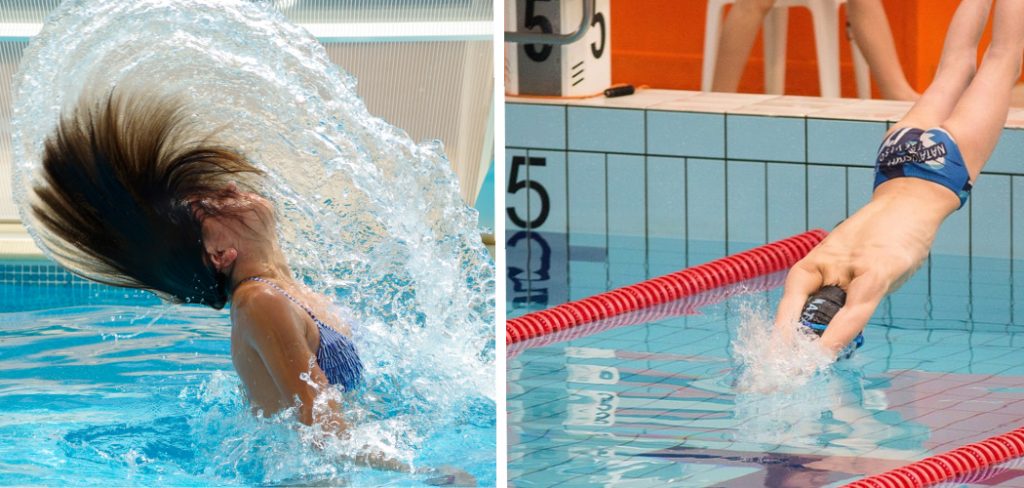
But before you resign yourself to living with bad hair for the rest of the summer, check out these tips on how to fix swimmers hair! With just a few simple steps, you’ll be able to restore your locks to their former glory. So go ahead and dive into that pool; we’ve got you covered!
Summary: This blog post will explain how to fix swimmers hair. We’ll discuss how to wet your hair and apply conditioner, apple cider vinegar and coconut oil.
Additionally, we’ll provide steps on applying a deep conditioning treatment, using a hair mask and serum as well as avoiding heated styling tools. Further, we’ll look at using a blowdryer with a diffuser and a wet brush. After reading this blog post you will know what actions to take to fix your swimmers hair for good!
What Causes Swimmers Hair?
Swimmers’ hair is often a victim of chlorine and saltwater. The chemicals in these waters can cause the hair to become brittle and dry, leading to breakage and split ends. Swimmers’ hair can also become weighed down by the water, making it look limp and greasy. Sun exposure can also cause discoloration and dryness.
10 Ways on How to Fix Swimmers Hair
1. Wet Your Hair
When you have swimmer’s hair, it is important to wet your hair. This will help to keep your hair from drying out.
2. Apply Conditioner:
Conditioner is important for fixing swimmer’s hair. Apply a generous amount of conditioner to your hair and make sure to massage it in well. Leave the conditioner in for a few minutes before rinsing it out.
3. Apple Cider Vinegar
If your hair is feeling really dry and frizzy, you can try using apple cider vinegar. ACV is a natural conditioner and will help to tame those flyaways. Dilute apple cider vinegar with water and apply it to your hair. Please leave it in for a few minutes before rinsing it out.
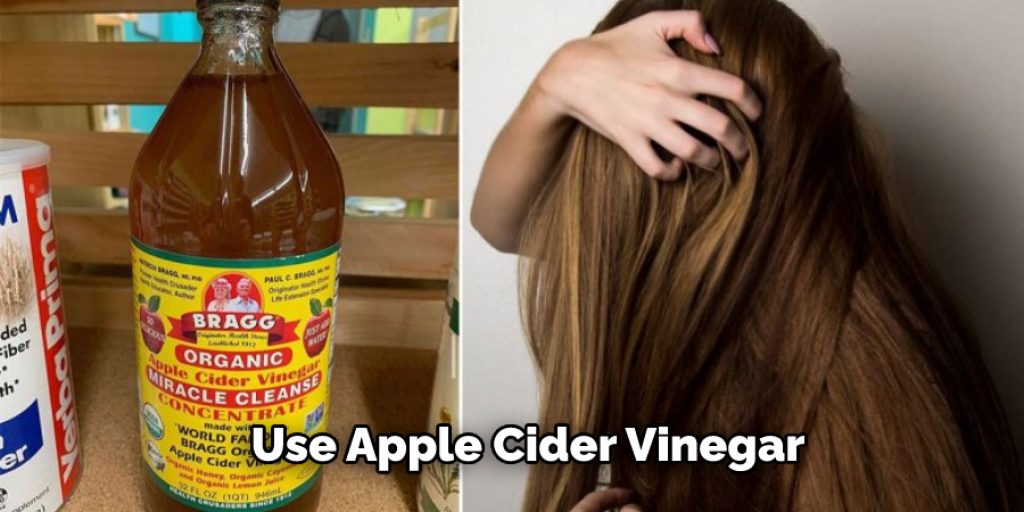
4. Coconut Oil
Coconut oil is a natural product that can be used to moisturize your skin and hair. It’s easy to use: just apply a small amount to your hair, focusing on the ends. Leave it on for 10-15 minutes, then rinse it off and style as usual. Your hair will look shiny and healthy!
5. Apply a Deep Conditioning Treatment
If your hair feels dry and damaged, you may want to try using a deep conditioning treatment. There are many different deep conditioning treatments available, so you can choose one that best fits your needs. Apply the treatment to wet hair, leave it in for 10-15 minutes, then rinse and style as usual.
6. Use a Hair Mask
Hair masks are another great way to add moisture and shine to dry, damaged hair. There are many different hair masks available, so you can find one that best suits your needs. Apply the mask to wet hair, leave it in for 10-15 minutes, and then rinse it.
7. Use a Hair Serum
Serums are another great way to add moisture and shine to dry hair. They are especially beneficial for those with curly hair, as they help to tame frizz and keep curls looking defined. Apply a serum to damp hair after shampooing and conditioning, then style as usual.
8. Avoid Heated Styling Tools
Styling tools like hairdryers, straighteners, and curling irons can seriously damage your hair. Try to avoid using them whenever possible, and always use a heat-protective spray or serum when you do have to use them.
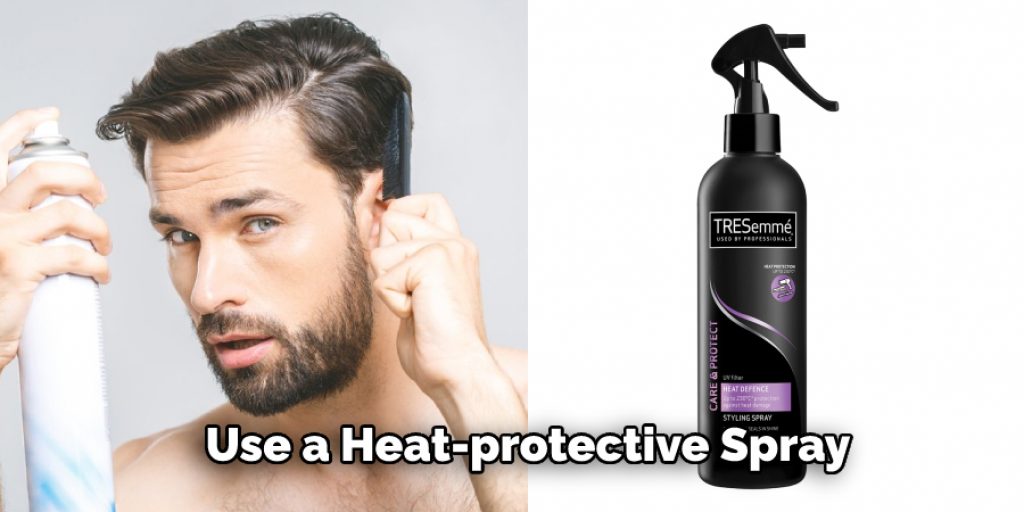
9. Use a Blowdryer with a Diffuser
If you can’t avoid using a heated styling tool, try using a blowdryer with a diffuser. This will help to minimize the damage and will help to keep your hair from drying out. If you need to use a curling iron, make sure that the curling iron is not too hot.
10. Use a Wet Brush
A wet brush is perfect for combing through wet hair without causing any damage. In addition, it helps to distribute the conditioner evenly and remove any tangles. Wet brushes are available at most drugstores and department stores.
Some Helpful Tips and Suggestions
Here we have given some helpful tips on how to fix swimmers hair.
1. Rinse your hair with cold water after swimming. This will help to close the cuticles and keep the hair from absorbing too much chlorine or saltwater.
2. Use a clarifying shampoo once a week. This will help remove any build-up of chemicals or minerals that can make your hair look dull or dry.
3. Apply a deep conditioner to your hair after swimming. This will help restore the moisture that has been lost and help protect your hair from further damage.
4. Use a swim cap when swimming in chlorinated or saltwater. This will help to keep the hair from absorbing too much of these chemicals.
5. Try to avoid swimming in chlorinated or salt water whenever possible. If you can’t avoid it, then rinse your hair with cold water and use a clarifying shampoo and deep conditioner afterward.
6. If your hair is really dry and damaged, you may want to consider using a hair mask once or twice a week. This will help to nourish and repair the hair shafts.
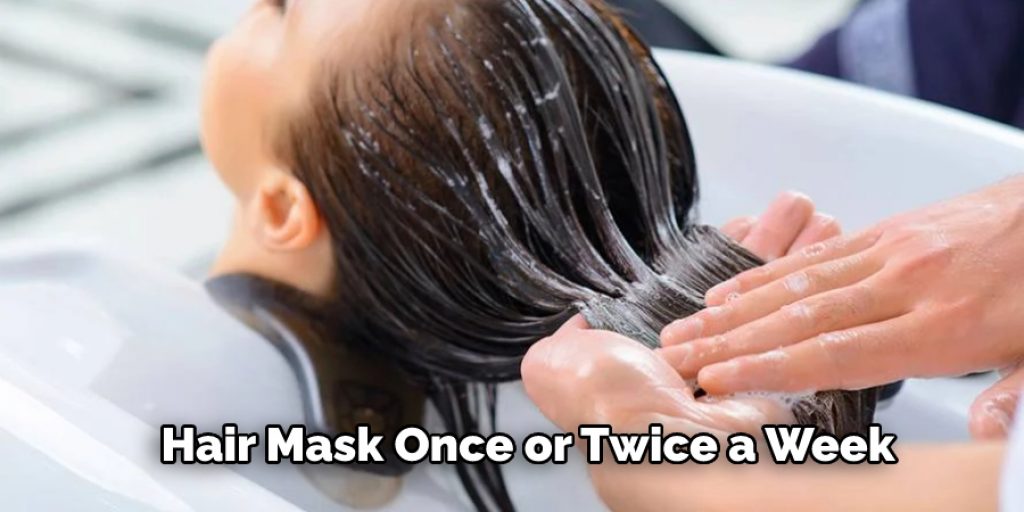
7. Make sure to drink plenty of water and eat healthy foods. This will help to keep your hair healthy from the inside out.
You Can Check It Out to Fix Bumpy Hair Strands
Five Home Remedies for Swimmers Hair
1. Apple Cider Vinegar Rinse
Mix 1 cup of apple cider vinegar with 1 cup of water. Pour the mixture over your hair after shampooing, and let it sit for 3-5 minutes. Rinse thoroughly. Apple cider vinegar helps close the hair cuticle, preventing frizz and flyaways.
2. Coconut Oil
Massage a small amount of coconut oil into your hair, and leave it in for 30 minutes. Rinse thoroughly. Coconut oil helps to condition the hair and scalp, and it also has anti-fungal properties.
3. Baking Soda Rinse
Mix 1 tablespoon of baking soda with 1 cup of water. Pour the mixture over your hair after shampooing, and let it sit for 3-5 minutes. Rinse thoroughly. Baking soda helps to remove built-up products and chlorine from the hair.
4. Alcohol
Apply a small amount of alcohol to your hair after swimming. Alcohol helps to close the cuticles on your hair, which will help to reduce the amount of chlorine that is absorbed.
5. Lemon Juice
Squeeze the juice of 1 lemon into a cup of water. Pour the mixture over your hair after shampooing, and let it sit for 3-5 minutes. Rinse thoroughly. Lemon juice helps to remove chlorine and other minerals from the hair.
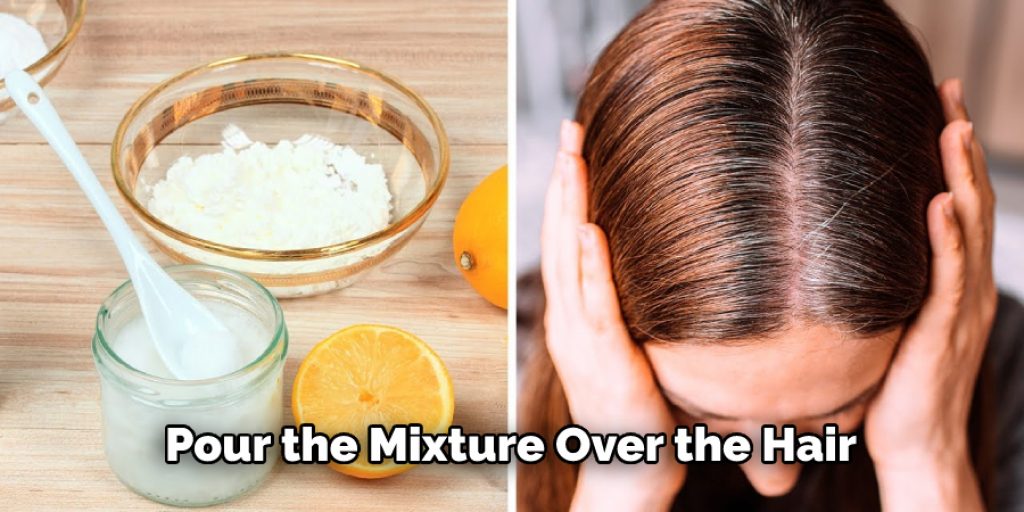
How to Prevent Chlorine-Damaged Hair?
Chlorine is the number one enemy of hair. It can strip the hair of its natural oils, leaving it dry, brittle, and susceptible to breakage. Chlorine-damaged hair often appears straw-like or straw-colored. If you swim in a chlorinated pool regularly, your hair is likely damaged.
There are several things you can do to protect your hair from the damaging effects of chlorine:
1. Wear a Swimming Cap. A swimming cap will keep the chlorine out of your hair.
2. Shampoo Your Hair After Swimming. Shampooing your hair will remove the chlorine and help to restore its natural pH balance.
3. Use a Conditioner. A good quality conditioner will help to protect your hair from the damaging effects of chlorine.
4. Use a Hair Treatment. A hair treatment such as a deep conditioner or oil can help to restore the moisture and nutrients that chlorine has stripped from your hair.
5. Eat a Healthy Diet. Eating a healthy diet will help to keep your hair healthy and strong.
6. Drink Plenty of Water. Drinking plenty of water will help to keep your hair hydrated.
7. Avoid Using Hot Tools. Hot tools can damage the hair, making it more susceptible to the damaging effects of chlorine.
Why Doesn’t Normal Shampoo Work to Fix Swimmers Hair?
As any regular swimmer knows, chlorine can really take a toll on your hair. It makes your locks feel dry and straw-like, but it can also cause them to change color and even fall out. So what’s the best way to fix swimmer’s hair? Believe it or not, you don’t need to use a special shampoo to get the chlorine out. In fact, regular shampoo can actually make the problem worse.
The normal shampoo doesn’t work to fix swimmer’s hair because it contains detergents. These detergents are designed to strip away all of the oils from your scalp and hair, making your locks feel so dry and straw-like. Chlorine can also cause the hair to become more porous, which means that the detergents in normal shampoo can be even more effective at stripping away the oils.
So what’s the solution? Instead of using regular shampoo, try using a conditioner instead. Conditioners are much milder than shampoo, and they won’t strip away the oils from your hair. Instead, they’ll actually help to lock in the moisture and keep your locks looking healthy.
You Can Check It Out To Fix Color Banding in Hair
Frequently Asked Questions
Can Chlorine Permanently Damage Hair?
In short, yes. Chlorine can damage hair if it’s used regularly and at high levels. The main reason for this is that chlorine interacts with the natural proteins in the hair to create harmful ions such as chlorite and hypochlorous acid. These acids can cause permanent damage to the protein structure of your hair, which may lead to loss of density, strength, coloration, or curl pattern.
In addition to causing hair Damage, chlorine also causes skin irritation and a decrease in scalp health due to its impact on scalp follicles and sebaceous glands. It is important not to use chlorine excessively or expose your head directly to sunlight because doing so could increase your risk of developing acne or other skin problems related to excess exposure to light.
Should I Oil My Hair Before Swimming?
as each person’s hair type and swimming style will be different. However, many swimmers believe that oiling your hair can help eliminate static and increase the lifespan of swimwear. If you choose not to oil your hair, make sure to avoid putting any products in your hair or on your skin that could contain oils or other fragrances.
What Shampoo is Best for Getting Chlorine Out of Hair?
There are a few different types of shampoo that can be used to get the chlorine out of hair. One option is a shampoo with activated charcoal, which is designed to absorb and bind to chlorine molecules. This leaves the hair free from the offensive smell and taste of chlorine. Other options include shampoo with Laureth sulfate, which helps to remove chlorine from the hair follicle.
Can I Protect My Hair From Chlorine Without a Swim Cap?
Yes, you can protect your hair from chlorine without a swim cap. One way to do this is to use a water filter that attaches directly to the faucet. This will allow you to drink clean and healthy water while swimming and avoid exposure to harmful chemicals.
Additionally, many shower gels now have ingredients that help protect against chlorine damage. Just be sure to read the ingredient list carefully before using them in case there are any potential skin irritants or toxins present.
Conclusion
Swimmers are often left with dry, damaged hair after a day in the pool. In addition, chlorine and other chemicals found in swimming pools can be harsh on hair, stripping it of its natural oils and leaving it feeling brittle and straw-like. In this post, we have shared some tips for how to fix swimmers hair to get back to looking (and feeling) your best.
There are a few key steps that you can take to help protect your hair from the damaging effects of chlorine and other pool chemicals. We recommend using a swim cap whenever possible and shampooing and conditioning your hair immediately after swimming. In addition, make sure to use a good quality moisturizing conditioner regularly. We hope this blog post has been helpful. If you have any questions or want to know more, then feel free to comment below!
You Can Check It Out To Fix Short Arm Throwing
